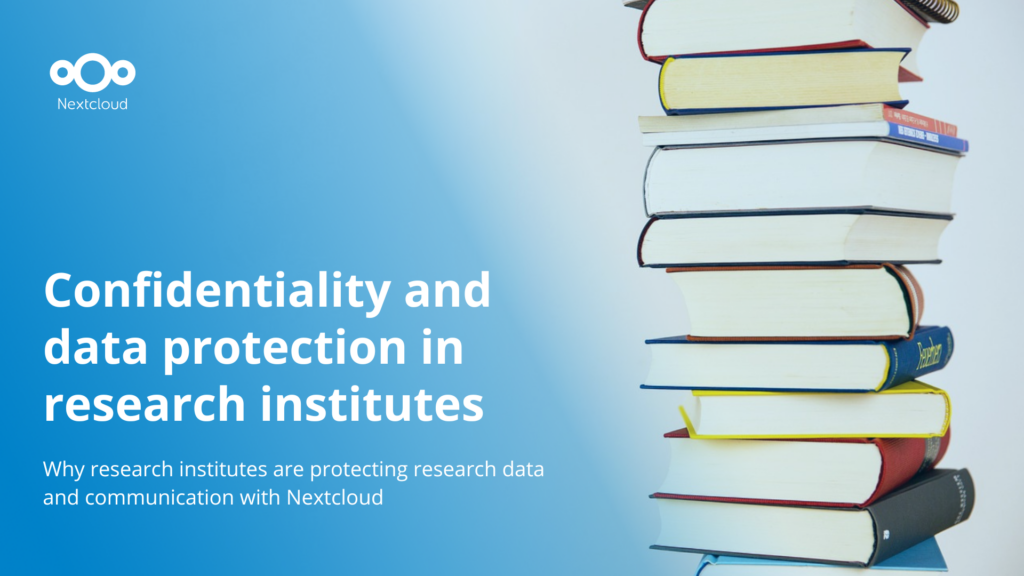A new data access architecture for Nextcloud: introducing the ADA engine
Introducing the ADA engine, Nextcloud’s new data access architecture: Faster file access, lower server load, direct S3 downloads, and more.
Read MoreData protection for education is key as research institutes produce some of the world’s most valuable data. Research of human beings, animal/plant life, society’s and cultures, and so much more, generate a world of insights. This data being collected is integral to future advancements in our society, yet we must ask ourselves how it’s being protected today. For the sake of confidentiality and privacy, how can we keep critical research data protected?

Research institutes are responsible for conducting, storing, analyzing, using and ultimately sharing research data. Before research begins, there should be data protection protocols in place to prevent data loss, manipulation or theft. Read on to discover how research institutes can actively prevent data infringement and protect their data with Nextcloud as their platform.
One of the best ways to protect research data is to limit access to it. Only a handful of people will need to open the research folders and sysadmins can control this process down to a tee.
In Nextcloud Files, advanced permissions that limit and/or restrict access are state-of-the-art and trusted by our customers and community.
Just a few examples of advanced permissions:
Learn more about how your organization can collaborate on research data with Nextcloud
Watch recordingOn a daily basis, external contacts send files and documents by email or through other channels which need to be scanned for threats like viruses. The Nextcloud Antivirus app (AV) performs automatic virus scans. Whenever a file is uploaded, it first gets handed over to the AV app.
Nextcloud provides optimal security for research data and communication through encryption and hardening.
We offer three types of encryption:
With machine learning based suspicious login detection, research institutes can increase security and productivity even beyond our brute-force protection and 2-factor authentification.
Suspicious Login Detection uses a locally trained neural network to detect attempts to login by malicious actors.
Try Nextcloud today to protect research data, communication and the privacy of people and things
Start a trial now